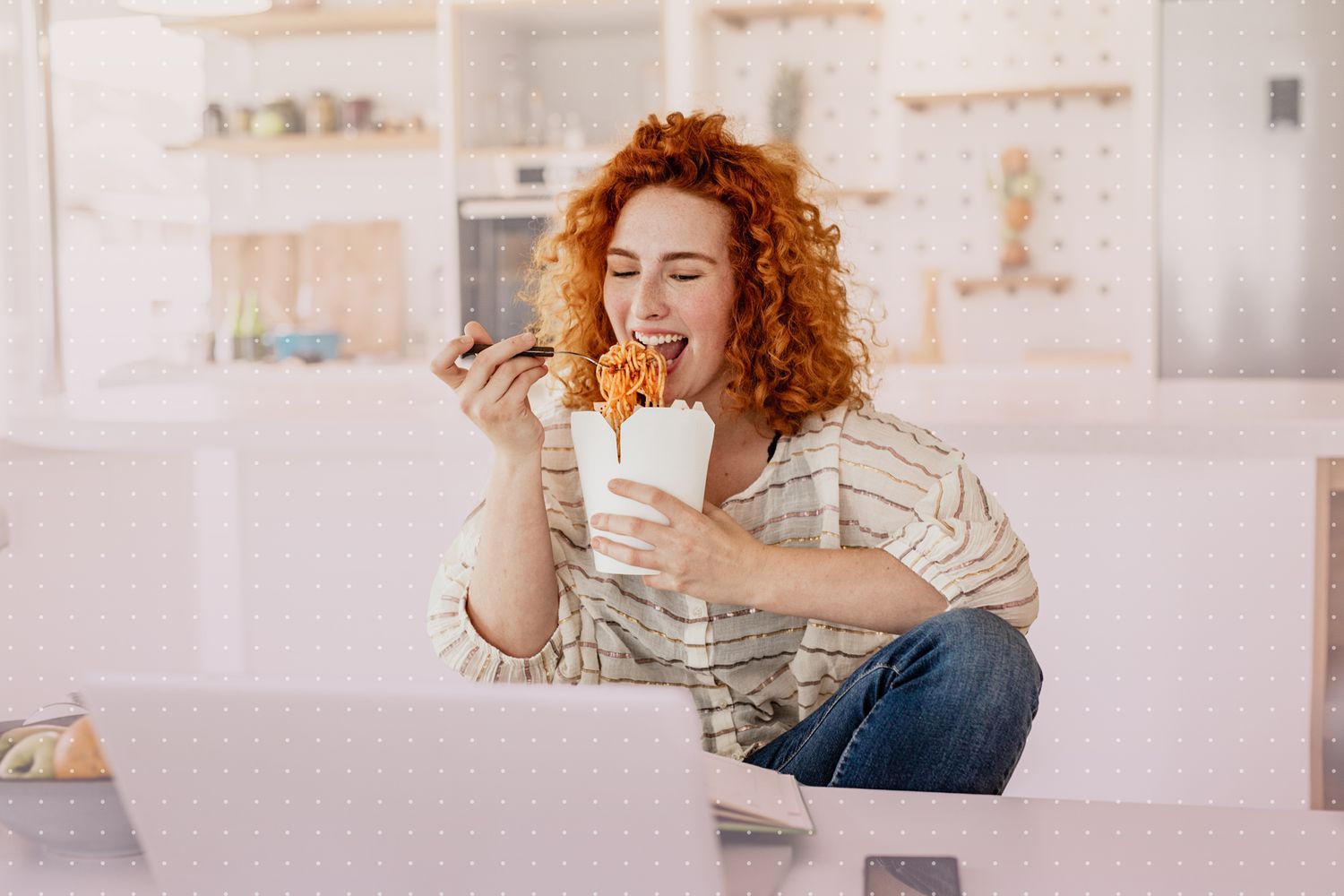Eating should be enjoyable, so when you get stuck with pretty bad acid reflux afterwards, it can really affect your day. Depending on what you eat and how you eat, this can lead to indigestion, where you might experience heartburn, upset stomach, or a weird taste in your mouth.
It can be difficult to know exactly what causes acid reflux in the first place, what affects how you treat it and prevents future attacks. Here are 6 things that make your acid reflux worse, so you can prepare ahead of time before your next meal.
eat too fast
“By eating too quickly and not taking the time to chew your food, you may experience symptoms of acid indigestion. The stomach muscle reaction to unchewed food, or even overeating in one sitting, can disrupt normal peristalsis during digestion.” says Brooke Zigler, MLA, RDN. Peristalsis consists of wave-like muscle contractions that help push food along the gastrointestinal tract. Essentially, this movement helps push food through the gastrointestinal tract, where you can digest it smoothly.
However, by eating too quickly, you risk disrupting these contractions. “People who eat too much or eat too quickly are prone to indigestion. When normal peristalsis is disrupted, someone may taste stomach acid and feel pain. This is when the people usually take antacids or acid controllers,” says Zigler.
Taking time to chew food well and eat at a slower pace can help improve symptoms. “As for chewing food, it largely depends on the type of food and how much chewing it actually involves (steak involves more chewing than a banana),” she explains. .
“However, it’s important to take the time to chew your food thoroughly so that enough enzymes are produced in your mouth to completely break down your food,” she says. Use your best judgment based on what’s on your plate.
Eat large meals
Sometimes a large meal in one sitting can lead to acid reflux symptoms. The sternum, or your chest, may start to get irritated and you may experience heartburn symptoms.
“When you eat large meals and suffer from reflux, acid and stomach contents back up into your esophagus, irritating the sensitive lining. This results in a painful sensation known as heartburn,” explains Zigler.
A repair? Do not eat too much at once to aid digestion. Eating smaller, more frequent meals throughout the day can help stave off reflux.
drinking alcohol
Unfortunately, a glass of red wine can trigger your acid reflux symptoms, according to the National Institute of Diabetes and Digestive and Kidney Diseases (NIDDK). According to a 2019 meta-analysis of 29 studies in the review, people who drink more regularly have a 48% increased risk of reflux compared to those who don’t drink or drink occasionally. Alcohol and alcoholism.
There are several factors involved when it comes to alcohol, but part of it is that it can cause direct damage to the lining of the esophagus and stomach. It also relaxes the valve between the esophagus and the stomach, and it can encourage the stomach to produce more acid, Zigler says.
Not having a healthy weight
“Excess weight can increase pressure on the abdomen. As a result, the lower esophageal sphincter is more likely to allow stomach contents to flow back up into the esophagus,” says Zigler, which may cause discomfort after eating a meal. .
If you are overweight or obese, you may want to consider asking your doctor if modest weight loss might help your reflux. According to NIDDKit’s a lifestyle change that can ease your symptoms.
drinking coffee
Yes, you might want to put down that cup of coffee or that dark chocolate bar. “Foods and drinks that contain caffeine can increase the acidity of gastric secretions. In order to decrease the acidity of these secretions, it’s best to minimize the amount of caffeine in your diet,” says Zigler.
Caffeine can also relax the lower esophageal sphincter, triggering acid reflux or making it worse. “However, a lot of it depends on the person and their sensitivity to caffeine and acidic foods,” she says. “Certain foods can trigger reflux in one person and not in another. It really depends on the individual,” she explains.
Beyond caffeinated foods and beverages, such as coffee, dark chocolate, some protein bars, and energy drinks, acidic foods include citric juices, tomatoes, and sodas, all of which can cause pain in someone when the esophagus is already inflamed, Zigler says.
Still, not all studies agree or find the same results when it comes to caffeine and acidic foods in relation to worsening acid reflux, so it’s best to go by the way which your body reacts to. If it makes it worse, give it up.
Eat right before bed
It’s not just the size of the meal, but also the timing. “If you eat a large meal right before bed, you may not be giving yourself enough time for the food to digest properly, and a full stomach may keep you awake,” says Zigler.
Instead of having a big dinner right before you go to sleep, try eating a meal that contains both fiber and protein about 3-4 hours before you go to bed. “This will give your body enough time to properly digest food and also provide you with stable blood sugar levels,” she says. Also, don’t lie down immediately after eating, as this could also lead to heartburn or worsen acid reflux, she adds.
The essential
Acid reflux can be caused by a variety of factors, including how fast you eat, how much, when, and what you eat. By taking a close look at your habits, you may be able to identify changes you can make to make mealtime a comfortable and enjoyable experience again.
